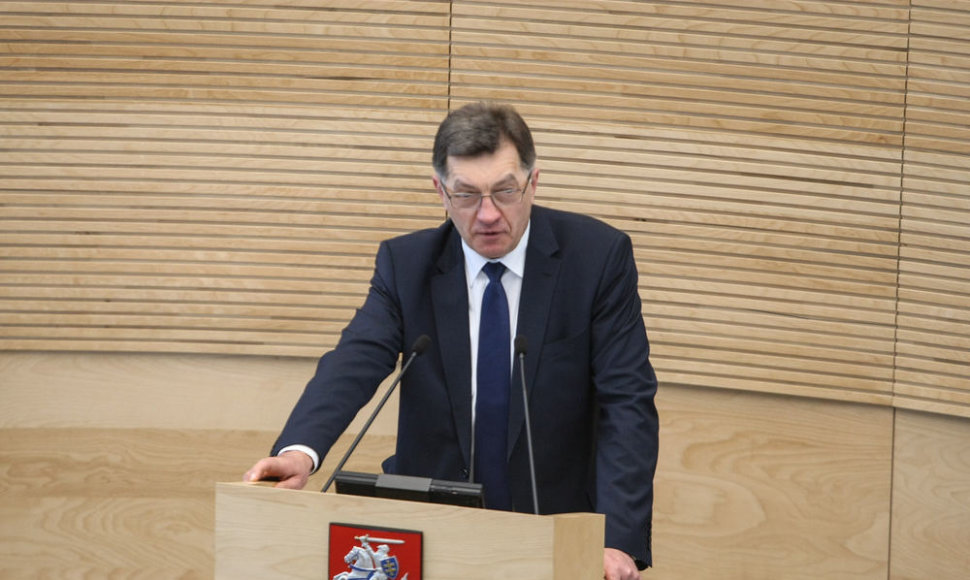Meanwhile Seimas Speaker Vydas Gedvilas has stated that the parliament will dedicate three hours to the issue in its April 25 agenda.
“First of all, the vision will be presented in full to the coalition as early as on April 22. On April 25, it will be presented in the Seimas and will be accompanied by detailed explanations how much it may cost,” Butkevičius said in an interview to Žinių Radijas on Thursday.
The strategy would include the estimates of electricity price in case a nuclear power plant was built, he said.
“The work done is really significant. In particular, as many as 70 mathematical modules have been applied and I hope that we will see the best possible solution, which, as I said, will take into consideration the effects on the economy and the potential cost of electricity generation if we are to build the nuclear power facility,” Butkevičius said.
Gedvilas of the Labor Party has confirmed that the strategy will be presented in the parliament at the end of April.
“As far as I know, we have decided to dedicate three hours to energy issues in the Seimas’ plenary session hall on April 25 and the findings of this task group should be presented,” he said in an interview to the Polish-language radio station Znad Willi on Thursday.
According to media reports, the Energy Ministry is inclined to propose to the government to continue the project on the construction of a new nuclear power facility, but with major adjustments. It seems that Butkevičius and other influential Social Democrats would not object if the project, planned in cooperation with Japan’s Hitachi, Latvia, and Estonia, was to proceed.
The media has reported that Hitachi might be invited to make “actual” investments in the construction of the facility instead of just “selling the reactor”. Moreover, Visagino Atominė Elektrinė (Visaginas Nuclear Power Plant, or VAE), the company that deals with the construction of the new nuclear power plant, would be reorganized into a regular state-owned company. On top of that, Lithuania would give up its dominance in the project and would invite Latvia and Estonia to increase their participation, both in terms of shareholding and financing. The neighboring countries are reportedly still willing to take part in the project, even under new conditions.












